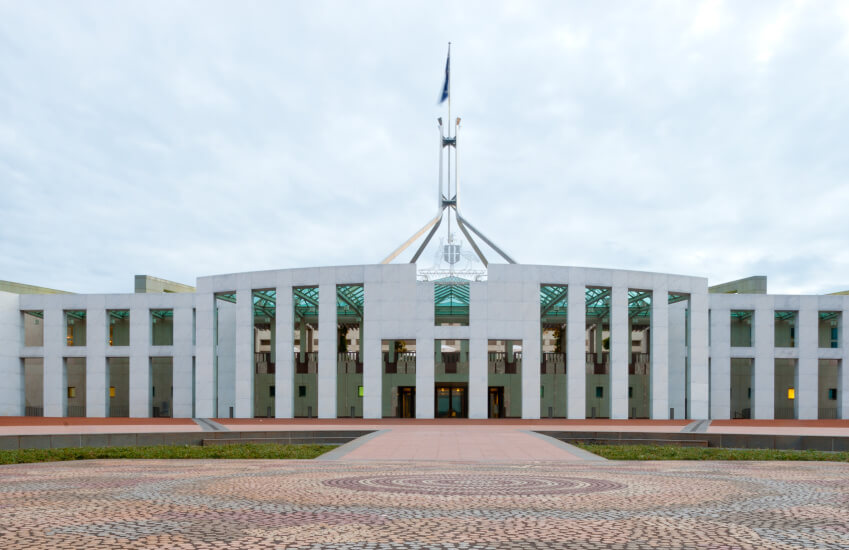Accountants Daily understands that the Treasury Laws Amendment (Reducing Pressure on Housing Affordability Measures No. 2) Bill 2018, due to be debated in the Senate yesterday, was removed from the schedule following Senator David Leyonhjelm raising concerns with the government.
The bill proposes measures to deny non-residents the CGT main residence exemption for CGT events that happen on or after 9 May 2017, subject to a 30 June 2019 transitional rule, potentially impacting Australian expats or citizens who lose their Australian tax residency status.
You’re out of free articles for this month
The tax community has been vocal about the retrospective nature of the legislation, which would see application as far back as 20 September 1985, when the CGT regime began.
Henderson Edelstein director Zubair Bangash earlier noted that the changes would disadvantage Australians who were part of a mobile workforce, while Nexia national tax director Roelof van der Merwe predicted a rush by non-residents to sell their property before the 30 June 2019 deadline.
TaxBanter senior tax trainer, Robyn Jacobson, who has been a leading voice in lobbying efforts, told Accountants Daily that the delay in Senate debate would provide the government more time to contemplate amendments before the Senate next sits on 12 November.
“Just because the government further considers doesn’t guarantee the amendments but I am hoping with further time to consider the impact on Australian expats that we may see a sensible outcome when the bill returns for debate before the Senate,” said Ms Jacobson.
“The other aspect is that we’ve got an impending deadline of 30 June 2019 and the longer the bill is delayed, the longer the uncertainty about whether that day will end up being the final date to take advantage of the current law if you held the property at May last year.”
While supporting the bill in principle of denying the main residence exemption to non-residents, Ms Jacobson is hoping the government considers amendments to the retrospective nature of the bill.
“I've repeatedly sought an amendment to allow the cost base of the property to be reset to its market value when the person becomes a non-resident so that the capital gain that is taxable is confined to that which accrues from when they became a non-resident,” said Ms Jacobson.
“Alternatively, pro-rate the days so the days which you are resident you will be exempt and the days that you are a non-resident you will be taxable.
“Both of those mechanisms are in the current law. We already have a precedent for that and those rules were introduced to provide a prospective and sensible approach to changes in the law.”
‘Ordinary Australians’ affected
Ms Jacobson believes there has been a misconception that the proposed changes will only affect wealthy expats, but instead will impact any Australian who becomes non-residents for tax purposes.
“There are ordinary Australians who go overseas and are not wealthy expats, and that involves teachers, who seem to be the predominant profession involved here, and there are also going to be middle management, IT workers, researchers, medical assistants, academics, engineers and these are people on modest or middle incomes who will be affected so it is not confined to people on the multimillion dollar salaries being posted to exotic locations around the world,” she said.
Mr Bangash had also earlier highlighted that the proposed changes could disadvantage a mobile workforce.
“It is a strict rule that says that looks at the status of the person at that time it is sold,” said Mr Bangash.
“There is no allowance for any sort of apportioning either by way of ownership period, and given the way people work these days and the mobility of the workforce, there is no allowance for that.”
What’s next
With time ticking towards the 30 June 2019 deadline, Ms Jacobson is hopeful that the bill will go through before the end of the year to give taxpayers enough time to get their affairs in order.
“If the bill goes on too long, it is possible that they might even change the [30 June 2019] date but it is unlikely at this stage because we are still about eight months out,” said Ms Jacobson.
“If we can get a sensible outcome with the amendments to the bill and that can be passed through the Senate before Christmas then that will still give people six months to arrange their affairs which is still a reasonable period of time.
“If indeed the bill goes through in its current form then it is going to be a case of education to make sure taxpayers understand that either they need to sell by 30 June next year if they held the property at May 2017 or they will need to re-establish their residency in Australia to benefit from the current law.”
This email address is being protected from spambots. You need JavaScript enabled to view it.

 Login
Login







